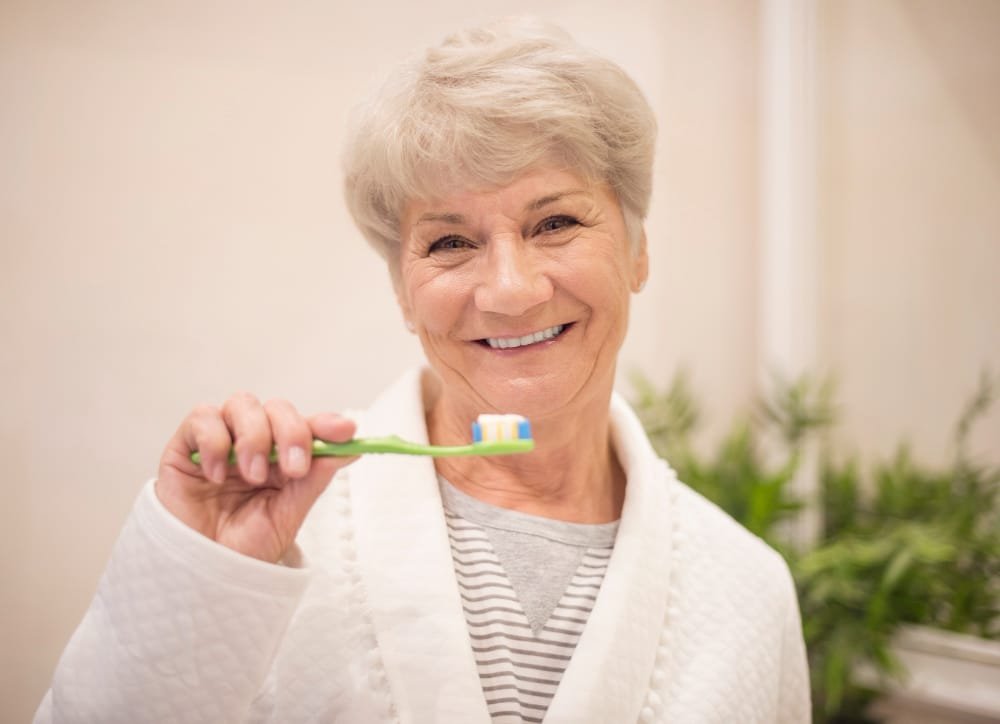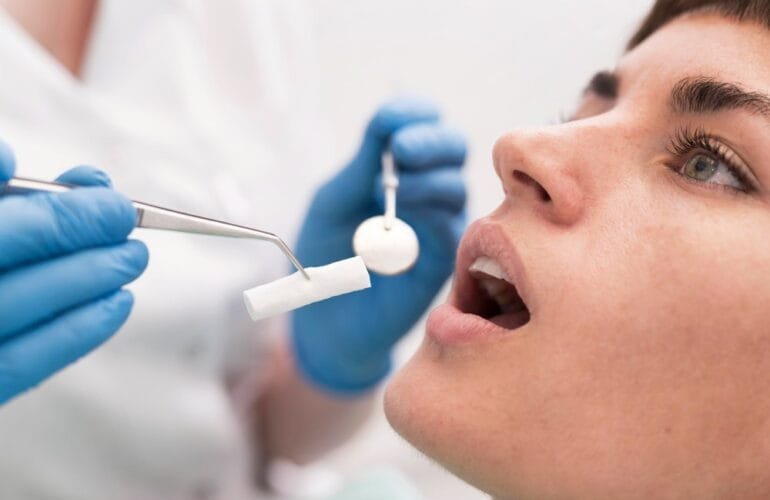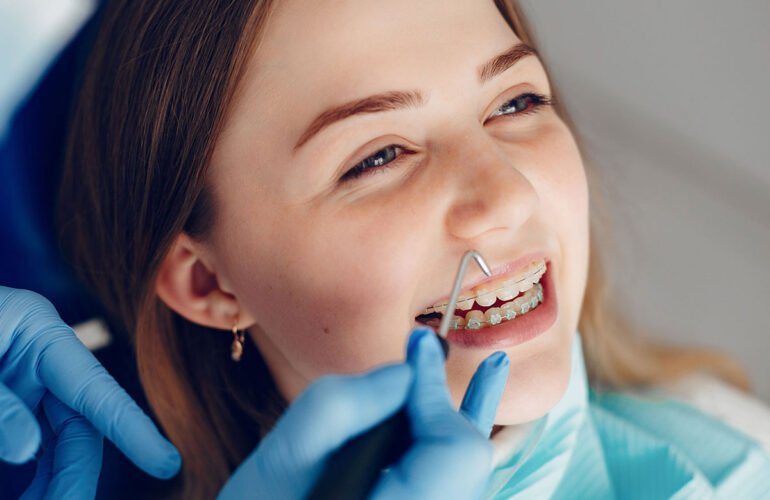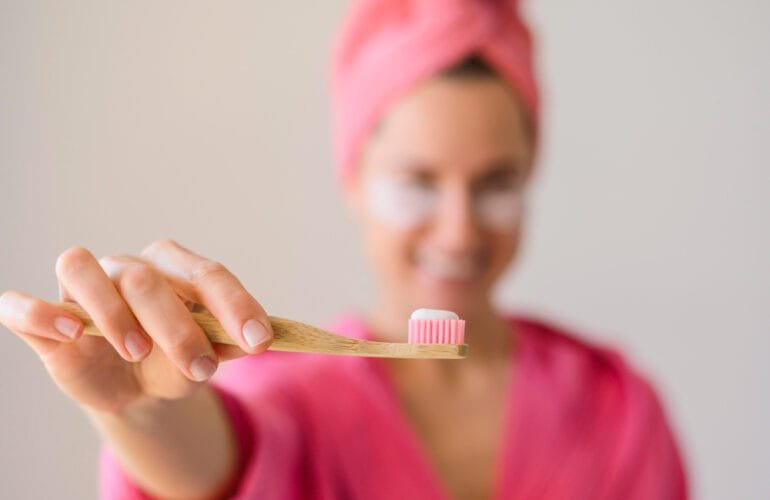Why Senior Oral Health Deserves Special Attention
As we age, our bodies naturally undergo a variety of changes and our mouths are no exception. Senior oral care becomes increasingly important because dental health directly affects overall well-being, nutrition, and even self-confidence. The golden years should be filled with smiles, not dental struggles. Maintaining oral hygiene isn’t just about preserving teeth; it’s about sustaining quality of life.
Neglecting oral care can lead to serious health complications such as heart disease, diabetes, and even cognitive decline. For this reason, it’s essential that seniors and caregivers understand the unique dental challenges that come with aging and learn practical, evidence-based strategies for maintaining healthy teeth and gums throughout life.
Understanding Oral Health Changes as You Age
The Connection Between Aging and Dental Health
Aging brings about changes in the mouth enamel wears down, saliva production decreases, and gums may begin to recede. These shifts make teeth more vulnerable to decay and infection. Seniors also tend to experience a reduced ability to taste, partly due to medications or reduced nerve sensitivity, which can affect diet choices and overall oral health.
Common Oral Problems Among Older Adults
- Gum disease (periodontitis): One of the most common conditions among seniors, it can lead to tooth loss if untreated.
- Tooth decay: Root surfaces become exposed as gums recede, increasing cavity risk.
- Dry mouth: Commonly caused by medications or medical conditions like diabetes.
- Tooth loss: Affects chewing, nutrition, and speech.
- Oral cancer: Risk increases with age, particularly among smokers and alcohol users.
Importance of Regular Dental Check-Ups for Seniors
What Happens During a Senior Dental Exam
A senior dental check-up is more than a routine cleaning it’s a comprehensive assessment of teeth, gums, and oral tissues. Dentists check for cavities, oral cancer, bite alignment, and signs of gum disease. X-rays help detect hidden decay, bone loss, or infections.
How Often Should Seniors Visit the Dentist?
Dentists generally recommend that seniors schedule dental check-ups every six months. However, those with conditions such as diabetes, dry mouth, or gum disease may need more frequent visits to monitor oral health closely.
Key Oral Hygiene Practices for Seniors
Proper Brushing and Flossing Techniques
Use a soft-bristled toothbrush and fluoride toothpaste. Brushing twice daily helps remove plaque and bacteria that contribute to decay and gum disease. For those with arthritis or limited dexterity, an electric toothbrush can make oral care easier and more effective. Floss daily using floss picks or water flossers.
Choosing the Right Toothpaste and Mouthwash
Opt for toothpaste containing fluoride to strengthen enamel and prevent decay. Alcohol-free mouthwash can help control bacteria without irritating dry or sensitive mouths.
The Role of Diet in Maintaining Oral Health
A diet rich in calcium, vitamin D, and antioxidants supports strong teeth and gums. Limit sugary snacks and acidic beverages that can erode enamel. Drinking plenty of water helps maintain saliva flow and wash away food particles.
Managing Common Dental Issues in Seniors
Tooth Decay and Cavities
Seniors are prone to root caries due to gum recession. Regular fluoride treatments and professional cleanings help prevent decay.
Gum Disease (Periodontitis) and Its Treatment
Gum disease is both preventable and treatable. Regular brushing, flossing, and dental cleanings reduce inflammation and bacterial buildup. In severe cases, deep cleaning or surgical dental treatments may be necessary.
Tooth Loss, Dentures, and Implants
Missing teeth can make eating and speaking difficult. Modern dentures and dental implants restore functionality and aesthetics, allowing seniors to enjoy life confidently.

The Impact of Medications on Oral Health
Dry Mouth and Its Complications
Many medications including those for high blood pressure, depression, and allergies reduce saliva flow. This dryness increases the risk of cavities, infections, and mouth sores. Sipping water frequently and using saliva substitutes can help.
How to Manage Medication-Induced Dental Issues
- Ask your dentist or doctor about alternatives with fewer oral side effects.
- Chew sugar-free gum to stimulate saliva.
- Avoid alcohol-based mouth rinses that worsen dryness.
The Relationship Between Oral Health and Overall Health
Oral Health and Heart Disease
Inflammation from gum disease can spread bacteria into the bloodstream, increasing the risk of heart problems.
Oral Health and Diabetes
Poor oral hygiene can make blood sugar control harder for diabetic seniors. Conversely, uncontrolled diabetes worsens gum disease a two-way relationship that requires active management.
The Link Between Oral Health and Cognitive Function
Emerging research suggests a strong link between gum disease and Alzheimer’s disease. Chronic inflammation and oral bacteria may contribute to cognitive decline.
Preventive Dental Care for Seniors at Home
Home Remedies for Maintaining Oral Hygiene
- Rinse daily with salt water to reduce bacteria.
- Use a soft brush and fluoride toothpaste.
- Eat crunchy fruits and vegetables that help clean teeth naturally.
Using Fluoride and Mouth Rinses Effectively
Fluoride strengthens enamel, while antibacterial rinses help control plaque. Use these products daily for best results.
The Role of Caregivers in Senior Oral Care
Caregivers play an essential role in maintaining the dental health of dependent seniors. They can assist with daily cleaning routines, ensure timely dental visits, and monitor for signs of discomfort or infection.

Modern Dental Technologies Benefiting Older Adults
Digital Dentistry and 3D Dental Implants
Technological advances now make treatments faster, safer, and more comfortable. 3D printing enables precise dentures and implants, restoring smiles efficiently.
Tele-dentistry and Remote Consultations
Virtual dental consultations allow seniors to receive professional advice without leaving home a major advantage for those with mobility issues.
Overcoming Barriers to Dental Care for Seniors
Financial Challenges and Insurance Options
Dental care can be expensive. Seniors should explore Medicare Advantage plans, dental discount programs, or local public clinics for affordable options.
Accessibility and Mobility Issues
Mobile dental services and home-based care programs now bring professional oral care directly to seniors’ residences.
The Psychological Impact of a Healthy Smile in Later Life
A bright, healthy smile boosts self-esteem, social confidence, and emotional well-being. Seniors who maintain oral health are more likely to engage in social activities and enjoy a higher quality of life.
Conclusion: Building a Lifetime of Smiles
Oral care for seniors is about more than keeping teeth clean it’s about nurturing health, dignity, and happiness. With consistent hygiene, professional check-ups, and the support of caregivers, it’s possible to enjoy a radiant smile at any age.
Disclaimer: This article is for general informational purposes only and should not be relied upon as medical or dental advice. Always consult your dentist or healthcare professional for personalised guidance.
Frequently Asked Questions (FAQs)
- How often should seniors get dental check-ups?
Every six months, or more frequently if advised by your dentist. - What toothpaste is best for older adults?
Fluoride toothpaste designed for sensitive teeth helps protect enamel and reduce discomfort. - Can gum disease be reversed in seniors?
Early-stage gum disease (gingivitis) is reversible with proper care, but advanced periodontitis requires professional treatment. - What are the signs of oral cancer in seniors?
Persistent sores, red or white patches, and difficulty swallowing should be examined by a dentist immediately. - How can seniors prevent dry mouth?
Stay hydrated, avoid alcohol-based products, and use saliva substitutes or sugar-free gum. - Are dental implants safe for seniors?
Yes. With healthy gums and sufficient bone density, dental implants are a durable and effective tooth replacement option.
References
- American Dental Association (ADA). Oral Health Topics for Older Adults. www.ada.org
- Centers for Disease Control and Prevention (CDC). Oral Health for Older Adults. www.cdc.gov
- Mayo Clinic. Aging and Oral Health: What to Expect and How to Care for Your Teeth. www.mayoclinic.org




